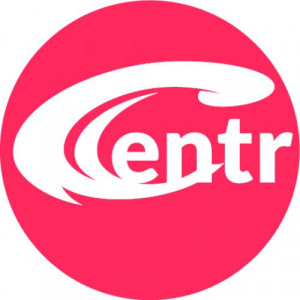News

EuroDIG 2023: shaping the internet ecosystem for tomorrow
At CENTR, when we talk about the future of the internet ecosystem, our mantras are education and dialogue. As a forum, EuroDIG facilitates this, while also serving as a reunion for familiar faces in European internet governance. Preaching to the choir helps sharpen talking points.

ICANN77: DNS abuse measuring, mitigation and the way forward
During the ICANN77 meeting in Washington DC, the discussions on DNS abuse moved past some important hurdles. Building on the momentum created at ICANN76, both the gNSO and the ccNSO made substantial progress on the subject.

Access to domain name registration data: new developments during ICANN77
Discover the latest developments on access to domain name registration data in our first blogpost covering the ICANN77 meeting. Dive into the ongoing discussions surrounding WHOIS and the challenges of balancing privacy and security. Learn about the Registration Data Request Service (RDRS), a pilot project set to launch in November, aiming to address concerns and assess the need for a standardised access and disclosure system.


EU Policy Update – May 2023
In a nutshell: The incoming Spanish Council Presidency has published its work programme for the second half of 2023. The EU institutions are close to finalising the legislation on the GI protection for crafts/industrial products, while trilogues have begun for the proposal for the GI protection for agricultural products. The Commission has opened a call for tender for a study on IP rights enforcement and counterfeiting. The European Parliament’s ITRE Committee has published over 500 amendments to the Cyber Resilience Act. ENISA has published its report on DNS identity and the verification of domain name holders. The Council has shared its conclusions on the EU Policy on Cyber Defence. The European Parliament has approved the e-Evidence Regulation in Plenary. The EDPS has issued Opinions on the Commission Recommendation to open negotiations on International Agreements on the exchange of personal data with five South American states. The CJEU has clarified when a GDPR infringement may give rise to a right to compensation. The Swedish Council Presidency has shared a compromise text on proposed legislation to combat child sexual abuse online. The European Parliament voted on its compromise text and negotiating mandate to enter into interinstitutional trilogues on the AI Act.

CENTR website maintenance
CENTR will perform a platform upgrade on its server on Tuesday 20 June 2023 at 14:00 CEST.

CENTR members meet at the 2023 Jamboree in Belgrade, focusing on the community and looking to the future
This year’s CENTR Jamboree in Belgrade was a resounding success, bringing together the vibrant community of domain name registries from Europe and beyond. With an influx of fresh faces and the participation of over 170 attendees onsite and 70 virtually, the event was a great opportunity for the community to get together and look towards the future.

Enhancing financial transparency: CENTR Finance Group meets in Brussels
On 24 May 2023, finance professionals from several CENTR member registries gathered in Brussels for their first face-to-face meeting since the CENTR Finance Group was established in 2022. The goal of the group is to allow its participants to benchmark financial data by way of standardised definitions of financial cost areas typical to a domain name registry.


EU Policy Update – April 2023
In a nutshell: The European institutions have concluded their trilogue negotiations on the GI protection of crafts and industrial products, while the Swedish Council presidency has put forward amendments to the sister proposal on the GI protection for agricultural products. The European Commission published a proposal for a regulation on standard essential patents, and released its recommendation on combatting online piracy. Commissioner Reynders outlined upcoming plans for the revision of the Consumer Protection Cooperation Regulation. Commissioner Breton introduced the European Cyber Shield. The Commission proposed a new Cyber Solidarity Act and a targeted amendment to the Cyber Security Act. In data protection, the EDPS has submitted input on the Commission’s GDPR review, and the EDPB adopted guidelines on data subjects’ right to access. The draft Insolvency Directive attracted submissions from the European Economic and Social Committee and the Parliament of the Czech Republic. The European Parliament’s LIBE Committee has published its draft report on proposed legislation to combat child sexual abuse online.

CENTR publishes the CENTRstats Global TLD Report Edition 4/2022
The CENTRstats Global TLD Report Edition 4/2022 has been published. It covers the global status and registration trends in all top-level domains (legacy gTLDs, new gTLDs and ccTLDs), with a specific focus on the European ccTLD market.

Flying the flag for the technical community: CENTR provides feedback to the United Nations' initiative on a Global Digital Compact
CENTR, the association which represents European country code top-level domain name registries (ccTLDs), such as .de for Germany or .no for Norway, has provided feedback to the United Nations' initiative on a Global Digital Compact (GDC).

